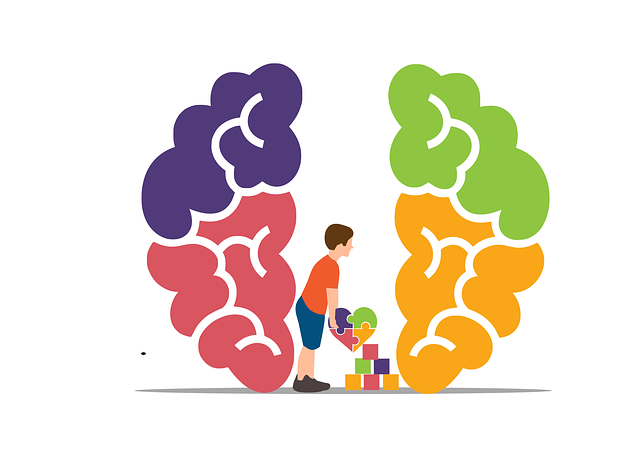Lakewood Veterans Therapy addresses the critical need for comprehensive mental wellness support among transitioning military veterans through specialized coaching programs. These programs incorporate conflict resolution, cultural sensitivity, and burnout prevention strategies, fostering resilience against PTSD and depression. Using evidence-based practices and personalized approaches, their initiatives empower veterans with coping skills and tools to navigate life's challenges successfully, facilitating successful reintegration into civilian life.
Mental wellness coaching programs, such as the pioneering efforts at the Lakewood Veterans Therapy program, are transforming lives. This article delves into the critical need for these initiatives, highlighting how tailored coaching interventions can effectively support veterans’ mental health. We explore the design principles behind successful coaching, focusing on strategies that have proven beneficial within the unique context of the Lakewood Veterans Therapy Program. By examining their implementation and evaluation, we gain valuable insights into enhancing mental wellness outcomes.
- Understanding the Need for Mental Wellness Coaching Programs
- Designing Effective Coaching Interventions for Veterans
- Implementing and Evaluating Lakewood Veterans Therapy Program Success
Understanding the Need for Mental Wellness Coaching Programs

In today’s fast-paced and often demanding world, mental wellness has become an increasingly important aspect of overall health. This shift is particularly evident among veterans who, after serving their country, face unique challenges in transitioning to civilian life. Lakewood Veterans Therapy recognizes this growing need for specialized support, which is why developing comprehensive Mental Wellness Coaching Programs is a priority. These programs aim to empower individuals with the tools and skills required to navigate life’s complexities, fostering resilience and promoting long-term well-being.
The demand for such initiatives is driven by various factors, including rising stress levels, the impact of trauma, and the need for better coping mechanisms. Conflict Resolution Techniques, Cultural Sensitivity in Mental Healthcare Practice, and Burnout Prevention Strategies for Healthcare Providers are all integral parts of these coaching programs. By addressing these areas effectively, Lakewood Veterans Therapy strives to create a supportive environment that caters to the diverse needs of its clients, ensuring they receive the highest quality of mental healthcare tailored to their unique circumstances.
Designing Effective Coaching Interventions for Veterans

Designing effective coaching interventions for veterans requires a deep understanding of their unique challenges and experiences. Many veterans return home with invisible wounds, such as post-traumatic stress disorder (PTSD) and depression, which can significantly impact their daily lives and reintegration into civilian society. Lakewood Veterans Therapy understands these complexities and offers specialized programs tailored to address the specific needs of military service members.
The coaching process should focus on trauma support services, coping skills development, and crisis intervention guidance. By incorporating evidence-based practices and a supportive environment, coaches can help veterans process traumatic events, build resilience, and develop effective strategies for managing symptoms. This personalized approach not only enhances their mental wellness but also fosters reintegration into the community, ensuring a brighter future ahead.
Implementing and Evaluating Lakewood Veterans Therapy Program Success

The Lakewood Veterans Therapy Program stands as a shining example of successful mental wellness coaching. This program has been meticulously designed to cater to the unique challenges faced by veterans, focusing on inner strength development through compassion cultivation practices. By integrating evidence-based therapeutic techniques with personal growth strategies, the program offers a holistic approach to healing. The success of Lakewood Veterans Therapy lies in its ability to empower participants with effective mood management skills, fostering resilience and improving overall mental wellness.
Evaluating this program’s impact is crucial for understanding its effectiveness. Through regular assessments and feedback mechanisms, therapists track individual progress, ensuring that each veteran receives tailored support. This systematic evaluation allows for continuous improvement, refining the coaching methods and adapting them to meet the evolving needs of participants. As a result, Lakewood Veterans Therapy emerges as a model for comprehensive mental wellness programs, setting a benchmark for care and support in the veterans’ community.
The development of mental wellness coaching programs, as exemplified by the success of initiatives like the Lakewood Veterans Therapy program, is a vital step in addressing the growing need for accessible and tailored support. By integrating effective coaching interventions, we can significantly enhance the well-being of individuals, particularly veterans, who often face unique challenges. This conclusion underscores the importance of continuing to innovate and implement such programs, ensuring that those in need have access to the resources required to navigate and overcome mental health barriers.














